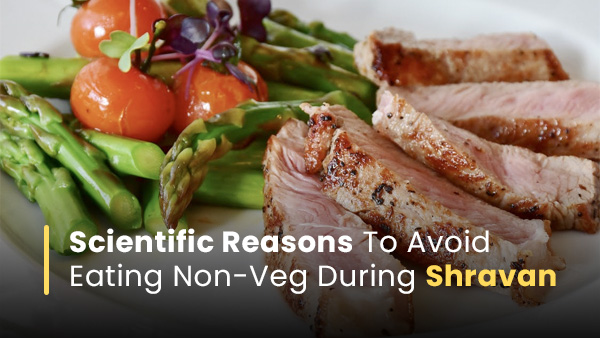Just In
- 34 min ago

- 1 hr ago

- 5 hrs ago

- 10 hrs ago

Don't Miss
- Sports
 Mumbai Indians Playoffs Scenario: Can MI Still Finish in Top 4 in IPL 2024 Points Table After Defeat to RR?
Mumbai Indians Playoffs Scenario: Can MI Still Finish in Top 4 in IPL 2024 Points Table After Defeat to RR? - Finance
 40% Of India's Silver Now Imported From UAE, Thanks To CEPA
40% Of India's Silver Now Imported From UAE, Thanks To CEPA - Technology
 itel S24 & T11 Pro TWS Launching Today in India: Check Price, Specs
itel S24 & T11 Pro TWS Launching Today in India: Check Price, Specs - News
 Jija Ji Will Contest Amethi Then What Will Saale Sahab Do?: Smriti Irani Mocks Rahul Gandhi, Robert Vadra
Jija Ji Will Contest Amethi Then What Will Saale Sahab Do?: Smriti Irani Mocks Rahul Gandhi, Robert Vadra - Movies
 Coolie Title Teaser Records: Rajinikanth, Lokesh Kanagaraj And Anirudh's Team-Up Creates A Buzz
Coolie Title Teaser Records: Rajinikanth, Lokesh Kanagaraj And Anirudh's Team-Up Creates A Buzz - Automobiles
 Maruti Suzuki Ertiga Continues To Lead the MPV Market Despite Long Waits
Maruti Suzuki Ertiga Continues To Lead the MPV Market Despite Long Waits - Education
 Telangana Inter Results 2024: How to Check Results Online at tsbie.cgg.gov.in?
Telangana Inter Results 2024: How to Check Results Online at tsbie.cgg.gov.in? - Travel
Kurnool's Hidden Gems: A Guide To Exploring India's Lesser-Known Treasures
Shravan Month 2022: Scientific Reason Why People Should Avoid Eating Non-Vegetarian Food This Month
The holy month of Shravan has begun and many people have started their rituals for the worship of Lord Shiva, along with abstaining from non-vegetarian foods, which are believed to be prohibited as per religious beliefs.

There might be many religious reasons for cutting down on non-veg foods during the season of rain, but there are equally scientific reasons why the consumption of non-veg food items is avoided and why fasting is also an important and healthy part of the season.
The scientific reasons why people should avoid eating non-veg during Shravan month will surely amaze you. Take a look.


Scientific Reasons To Avoid Eating Non-Vegetarian Foods During Shravan
1. Increased melatonin and reduced serotonin levels
During the monsoon season, the days get shorter and nights get longer by hours. [1] This increases the levels of melatonin hormones and reduces serotonin levels in the body. Melatonin is a hormone secreted in response to darkness while serotonin is a hormone secreted in response to daylight or sunshine or light environment and is high during the daytime. [2]
As the nights get longer in monsoon, the melatonin levels increase and serotonin decreases. Though melatonin is an important part of the gastrointestinal mucosa, its increased levels may disturb the stomach and cause problems in digestion. Also, as non-veg foods take longer for digestion, it is not suggested during the season, as high levels of melatonin along with the fats of non-veg may harm the overall gastrointestinal system.
2. Poor digestive fire
According to Ayurveda, the digestive fire or ‘Agni' or say digestive enzymes of our body gets disturbed and weak due to the climatic conditions of the rainy season which involves humidity, frequent changes in temperature and rainfall. [3]
Non-vegetarian foods like meats and fish take around two days for complete digestion due to the presence of high fibre and proteins in them. As the digestive fire during the season is already disturbed, animal meats can worsen the condition and cause problems like diarrhoea and vomiting.

3. Risk of infection
The average temperature during the monsoon is above 64 degree-Fahrenheit. A study says that the best temperature for the growth and multiplication of bacteria is between 40 °F and 140 °F, followed by double of its count within 20 minutes. [4]
As monsoon is the perfect breeding season for many types of microbes, the risk of infection through food and water increases. Also, the windy atmosphere of the monsoon allows many microbes to travel to long places, thus increasing the risk of infection again. Non-vegetarian foods have more chances to get infected during the season and thus, should be avoided. [5]

4. Immune system gets weak
According to a study, the human immune system functions differently in different seasons due to variations in melatonin, vitamin D levels and pathogen infectivity. During monsoon, the multiplication of microbes get high, followed by a disturbance in the digestive system which is directly related to immune health, and lower levels of vitamin D due to less sunlight. [6]
As the immune system is continuously exposed to infectious agents during the month, they may get weak and a lower amount of vitamin D, which is an antioxidant, adds to it. This is why, if we eat non-veg foods during this time of the month, the poor gut flora and immune system may not be able to fight the infections present in meats and promote quicker digestion, thus causing us problems.
5. Slower metabolism
As aforementioned, melatonin in the body increases during the rainy season causing sleep problems, which in turn, contributes to slowing down the metabolism of the body. When the metabolism of the body gets slow, the process of digestion that works on this concept, also gets slow and may not be able to process non-veg items quickly which are high in fats and proteins. [7]
When such foods stay in the digestive tract for longer periods, it gives rise to many bacteria in the system, thus hampering our health and immunity.

6. Makes one lethargic
Non-vegetarian food takes much time to digest, which can make us tired and sluggish. The high fibre, fats and complex carbs in meats do not allow them to pass easily through the digestive tract, and causes the body to drain extra energy for its movement and digestion in the intestines. [8]
Also, as the microbes in meat products increase during the rain, causing the body to use more energy to fight them, that tends to trigger lethargy and make us sluggish. This is why it is suggested to eat easily digestible and light foods that can help keep you active and agile.

Other Less Scientific Reasons
1. Risk of mental health problems affecting digestive health
Bad weather during the rainy season may trigger negative emotions and cause mood changes. This could be due to the lower levels of serotonin. This neurotransmitter, also known as a happy hormone, helps in stabilising the mood, happiness and wellbeing of a person. [10]
When it gets low, people might get sad and depressed which could directly affect their digestive health and thus, cause problems with the digestion of high-fat foods like animal meats.

Other Foods To Avoid
Apart from non-vegetarian foods during the month of Shravan, one must also avoid:
- Chilled or cold drinks
- Alcohol
- Spicy foods
- Milk (buttermilk, however, is good)
- Canned or processed foods
- Oily foods
To Conclude
The aforementioned points will help you understand why non-vegetarian foods are restricted during Shravan. To stay fit and healthy, follow the tradition of avoiding non-vegetarian foods.
-
 yoga spiritualitySawan Adhik Maas Shivratri 2023: Date, Puja Muhurat, Shubh Yoga And Significance
yoga spiritualitySawan Adhik Maas Shivratri 2023: Date, Puja Muhurat, Shubh Yoga And Significance -
 yoga spiritualitySawan 2023: Fourth Ride Of Lord Mahakal Appears In Four Forms
yoga spiritualitySawan 2023: Fourth Ride Of Lord Mahakal Appears In Four Forms -
 astrologyKhappar Yoga 2023 In Adhik Maas: These Two Zodiac Signs Will Be Lucky
astrologyKhappar Yoga 2023 In Adhik Maas: These Two Zodiac Signs Will Be Lucky -
 yoga spiritualityNava Tirupathi- Bhumipalakar Temple in Thirupulingudi Is Where The Lord Saved The Earth
yoga spiritualityNava Tirupathi- Bhumipalakar Temple in Thirupulingudi Is Where The Lord Saved The Earth -
 yoga spiritualityAdhik Maas Ki Katha: Reading Story Of Purushottam Maas Will Fetch You Special Blessings From Lord Krishna
yoga spiritualityAdhik Maas Ki Katha: Reading Story Of Purushottam Maas Will Fetch You Special Blessings From Lord Krishna -
 astrologySawan 2023: These Shivlinga-Related Remedies Will Impress 9 Planets And Remove Problems
astrologySawan 2023: These Shivlinga-Related Remedies Will Impress 9 Planets And Remove Problems -
 yoga spiritualitySawan 2023: Which Is The Biggest Temple Of Shiva In India?
yoga spiritualitySawan 2023: Which Is The Biggest Temple Of Shiva In India? -
 yoga spiritualityAdhik Maas 2023: Personality Traits Of Children Born During This Month
yoga spiritualityAdhik Maas 2023: Personality Traits Of Children Born During This Month -
 yoga spiritualityAdhik Maas Panchami 2023: Know Date, Shubh Muhurat And Remedies To Make Money
yoga spiritualityAdhik Maas Panchami 2023: Know Date, Shubh Muhurat And Remedies To Make Money -
 yoga spiritualitySawan 2023: 5 Bhog Items You Must Offer To Lord Shiva During Shravan Month
yoga spiritualitySawan 2023: 5 Bhog Items You Must Offer To Lord Shiva During Shravan Month -
 astrologyAdhik Maas 2023: Dos and Don'ts in Mala Masa, Remedies To Practice
astrologyAdhik Maas 2023: Dos and Don'ts in Mala Masa, Remedies To Practice -
 yoga spiritualityShravan Padmini Ekadashi 2023: Step By Step Guide To Follow Vrat Vidhi, Know The Benefits
yoga spiritualityShravan Padmini Ekadashi 2023: Step By Step Guide To Follow Vrat Vidhi, Know The Benefits


 Click it and Unblock the Notifications
Click it and Unblock the Notifications



